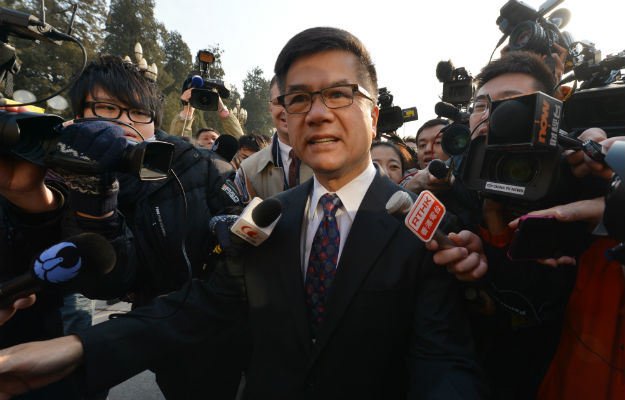In a short interview with Foreign Policy’s Isaac Stone Fish, U.S. ambassador to China Gary Locke discussed the U.S. debt crisis, air quality monitoring, the Snowden leaks and digital security, regional security issues, Bo Xilai’s trial, corruption investigations, and the jeep crash and fire in Tiananmen Square last week. As Stone Fish notes, Locke repeatedly used one “very particular phrase […] to convey U.S. opinions on Chinese human rights violations,” primarily in Xinjiang where the alleged attackers are from. “His responses, below, are telling.”
GL: […] We’ve long believed that the Chinese government should try to preserve the culture, the language, and the customs of different ethnic minority groups throughout China.
FP: Are the Chinese committing human rights violations in Xinjiang?
GL: Well, we’ve said all along that we believe that the Chinese government should try to be more respectful of the different cultures, religions, and languages within Xinjiang and elsewhere in China. China does have many other different ethnic minorities and…
FP: So you have no position on whether the Chinese are committing human rights violations in Xinjiang?
GL: We have said repeatedly that we believe the Chinese government should try to preserve the culture, the language, and the customs of the Uighur people in Xinjiang.
FP: But the question of human rights is not something you’re willing to comment on? It’s seems like there are two different things here. You can preserve the culture, the language, and the customs of the Uighur people and commit human rights violations, or not preserve them and not commit human rights violations. I’m wondering, what is the U.S. position on human rights issues in Xinjiang?
GL: We think there should be greater tolerance and respect for the religious practices and the cultural practices and the language of the Uighur people in Xinjiang. [Source]








